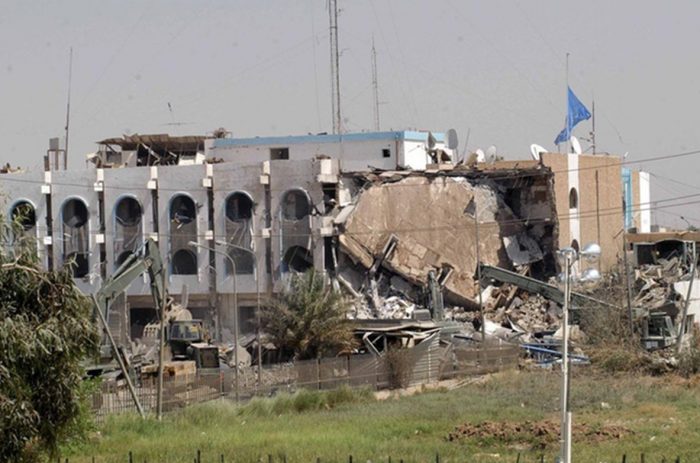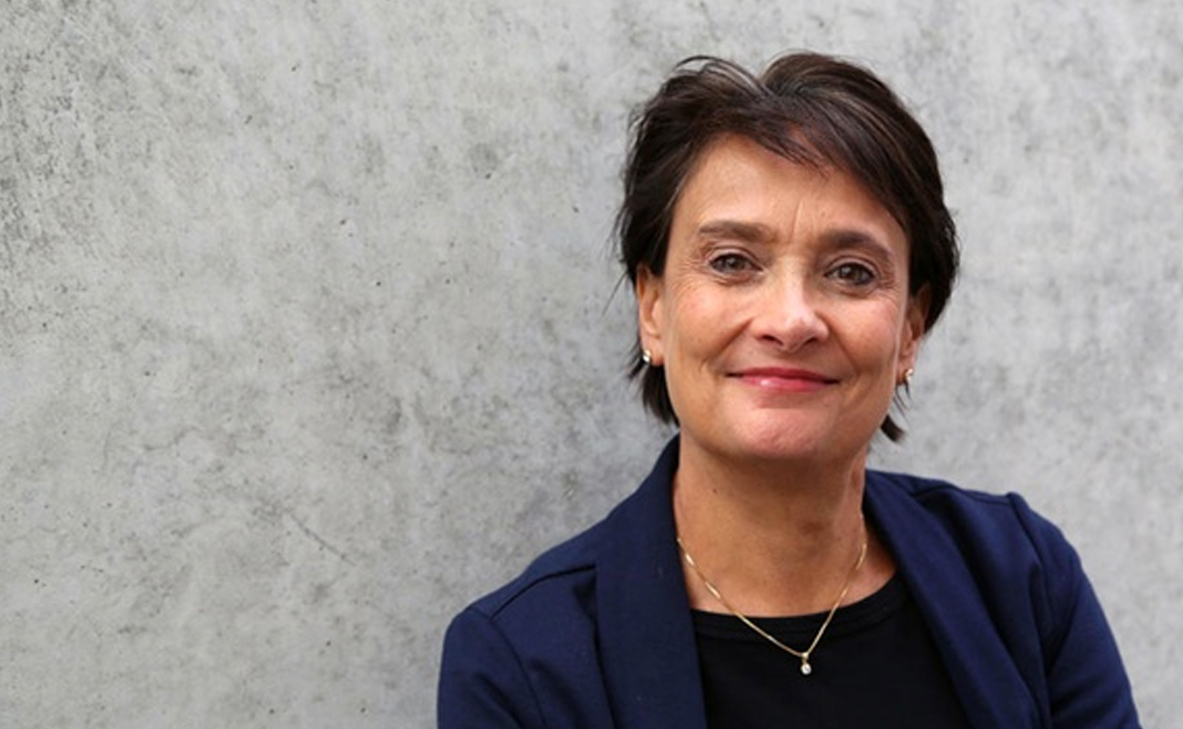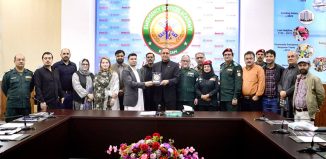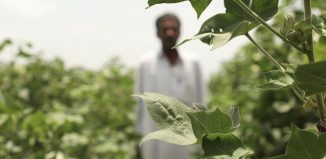A decade of World Humanitarian Day: what’s to celebrate?

August 19 marks World Humanitarian Day. First celebrated 10 years ago in 2009, the day was inspired, if that is the right word, by the tragic deaths of 22 aid workers in Baghdad in 2003, when a suicide bomber attacked the UN compound there.
I remember that day 16 years ago. Many journalists, myself among them, had been looking at post-Saddam Iraq, at the ambitious task undertaken by the UN to support the country towards a new future, and considering that this could make a good story. My own trip, together with two Swiss journalists, was at the planning stage.
Those plans came to an abrupt end that day, as aid workers and journalists alike began to look hard at what seemed to be a harsh new reality of working in conflict zones.
one aid worker told me.It’s not just being caught in the crossfire,
We have actually become targets.
In Geneva, that new reality exacerbated the grief at the loss of so many colleagues. Dr David Nabarro, then working with the World Health Organization, arrived back from Iraq still with the dust and blood of the bombing on his clothes. He told of trying to treat the wounded, while knowing some of his friends remained trapped inside the bombed UN headquarters.
he reflected later,I realised,
that my life would never be the same.
Shrinking space, more deaths
Moving tributes are paid every year to those who died in Baghdad, and World Humanitarian Dayexternal link tries, with a new theme each year, to draw attention to the role of humanitarian workers, and the need for them to operate safely.
And yet, the attacks, the abductions, the killings continue. In fact, they appear to be rising. In 2018 there were more than 400 acts of violence against aid workers, and 131 deaths. From South Sudan, to the Ebola-afflicted Democratic Republic of Congo, to Syria, to Yemen, to Afghanistan, aid workers are risking their lives to save lives.
But somehow, the tangible help they bring, their much-stated policies of remaining completely impartial and of helping the most vulnerable, do not seem to ensure the respect and protection aid workers need to do their jobs safely.
Focus on local
And so this year the UN and aid agencies are looking at ways to promote greater safety, and greater respect. A key focus from the Red Cross is on local volunteers. The Red Cross has 191 national societies, made up of thousands of people who, when disaster or conflict strikes their community, are the first to respond.
explains Jemilah Mahmood, Undersecretary General at the International Federation of Red Cross and Red Crescent Societies (IFRC)external link.It is {primarily} local aid workers who are being killed in the line of duty,
Often our volunteers are also the breadwinners in their families.
Too often, however, attacks on and deaths of local humanitarian workers get little attention, at least compared to the headlines that tend to accompany the killing of an international aid worker.
What’s more, the safety training, and even the insurance against death or invalidity for local aid workers is often very inferior to that provided to international staff.
The Red Cross is pushing for fairer treatment for local volunteers, negotiating an insurance scheme, and encouraging more safety training.
says Jemilah Mahmood.We want to ensure that people on the ground, local volunteers, get what is afforded to international workers,
It is the responsible and ethical thing to do, it’s not an add-on.
Focus on women
Meanwhile the UN’s office for the Coordination of Humanitarian Affairsexternal link has chosen to make women the focus this year. Amid evidence that female aid workers are at greater risk of violence, particularly sexual violence, than their male counterparts, OCHA says it wants to celebrate their ‘strength, power and perseverance.’
That should mean more than simply celebrating individual achievements, believes Shama Mall of the CHS Alliance, an organisation which promotes the Core Humanitarian Standard on Quality and Accountability.external link
she points out.Women humanitarians are essential for an effective response,
We gain access to the most vulnerable in a crisis: women, children, older people.
At the same time however, women aid workers can face mistrust, even from their own communities, if their work is seen to cross cultural or societal barriers.
says Shama Mall.I remember during the 2005 South Asia Earthquake response it was so difficult to access the women living in some of the more conservative and remote communities in North Pakistan,
We had to negotiate with male community leaders before we could meet the women. Fearful of the changing cultural norms, communities can view women humanitarians as a threat.
‘Practice what we preach’
Shama believes aid agencies have an as-yet largely unmet responsibility to address the specific challenges women face when carrying out humanitarian work.
But she adds, the employment practices of those same aid agencies sometimes still perpetuate gender imbalance:
As humanitarian and development personnel, we strive to support and empower marginalised groups, including women, to secure their basic rights.
Yet as female employees in the sector we know we can be treated differently, stereotyped, pigeonholed. We still don’t see gender-balanced humanitarian responses.
Time then, she believes, for the humanitarian community to look inwards, and consider
why we do not apply the same rules and standards within our organisations that we externally promote? We need to practice what we preach.
Erosion of principles?
But as the humanitarian community unites on August 19 to honour aid workers, and the role of women aid workers in particular, there is another nagging worry.
Whatever aid agencies themselves do to increase safety, to raise awareness of the particular challenges for women, and the particular contributions made by them, there is still the fear that as attacks on aid workers increase, the space for humanitarian work is shrinking, fuelled by a lack of support for the principles which underpin such work.
2019 is also the 70th anniversary of the Geneva Conventions, a set of rules often violated, but nevertheless steadfastly supported for decades by world leaders, and viewed by many as irreversible.
But today, the Conventions, and the Universal Declaration on Human Rights, do not get such vocal backing from government leaders. Instead the focus is on putting national interests first, on protecting borders. So much so that some organisations in the US and Europe even face prosecution for helping migrants and asylum seekers.
This ‘criminalisation of aid’ could, Jemilah Mahmood of the Red Cross fears, have serious implications for the safety of humanitarian work.
she says.When aid is criminalised, and there is politicisation of humanitarian assistance, of course it will have implications for security and safety,
Those implications are: more restrictions on how and where aid workers can operate, less respect and understanding for the crucial role they play in conflict and crisis, and perhaps even more attacks and deaths.
A tragedy not just for humanitarians, but for humanity.

Imogen Foulkes is originally from Scotland, and began her career with Scottish television, before moving to swissinfo’s predecessor Swiss Radio International. She has been the BBC’s Geneva and Switzerland Correspondent since 2004. Her assignments have taken her from an ICRC medical mission in Colombia, to UN human rights promotion in Tunisia, to UN support for elderly refugees in Serbia. And, from the heart of the new Gotthard tunnel on opening day, to the tops of Switzerland’s shrinking glaciers.
(swissinfo.ch)
You can follow Imogen Foulkes on twitter at @imogenfoulkes, and send her questions and suggestions for UN topics.






